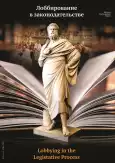Probable conclusion of an expert in a criminal case: evaluation and use by the prosecutor in court (debatable issues)
- Authors: Isaenko V.N.1
-
Affiliations:
- Federal State Budgetary Educational Institution of Higher Education “State University of Education”
- Issue: Vol 2, No 1 (2023)
- Pages: 29-36
- Section: Criminal law
- URL: https://bakhtiniada.ru/2782-7372/article/view/145644
- DOI: https://doi.org/10.33693/2782-7372-2023-2-1-29-36
- ID: 145644
Cite item
Abstract
The article discusses the ambiguously evaluated by process scientists the possibility of using the probable conclusion of an expert in proving a criminal case. This discussion arose quite a long time ago, continues at the present time and, apparently, will continue in the foreseeable future. There are indeed grounds for this, since the expert’s probable conclusion can also be interpreted in favor of the person against whom criminal prosecution is being carried out, since it does not contain a categorical conclusion about the reliable establishment of the investigated circumstance of the subject of proof or the fact constituting it. Scientists in this regard express diametrically opposed opinions, but in the overwhelming majority they are blamed for the fact that the probable expert opinion is subject to evaluation along with other evidence and, under certain conditions, can be combined with other evidence to form the basis of procedural decisions, including those made by the court. It should be noted that currently neither the Criminal Procedure Law nor Federal Law No. 73-FZ of 31.05.2001 “On State Expert Activity in the Russian Federation” provides for the division of expert opinions into categorical and probable, although such a classification exists and is recognized by the legal community. There is no explanation about this in the resolution of the Plenum of the Supreme Court of the Russian Federation No. 28 dated December 21, 2010 “On forensic examination in criminal cases”. At the same time, the said resolution does not prohibit the use of probable expert opinions in criminal proceedings, unlike the previously valid resolution of the Plenum of the Supreme Court of the USSR of 16.03.1971 with the same name. The author shares the position of scientists who believe that it is possible to use the expert opinions under consideration in proving a criminal case, including when maintaining state charges in court. In turn, the validity of this position is confirmed by the materials of the study of prosecutorial and judicial practice. examples of which are given in this article. At the same time, the lack of specificity of the conclusions contained in the probable expert opinions should force prosecutors to take a particularly careful approach to their research and evaluation before deciding on the validity of references to them in indictments and using them in proving the validity of the prosecution’s position in court. The nature of this decision is largely influenced by the degree (level) of probability of the expert’s conclusion, as well as the absence of contradictions between it and other evidence. According to the author, in order to eliminate disagreements regarding the use of probable expert opinions in criminal proceedings, it is advisable to include provisions establishing their legal status in the Federal Law on State Forensic Expert Activity and in the Criminal Procedure Law.
Full Text
##article.viewOnOriginalSite##About the authors
Vjacheslav N. Isaenko
Federal State Budgetary Educational Institution of Higher Education “State University of Education”
Author for correspondence.
Email: viach.isaencko2015@yandex.ru
Doctor of Law, Professor; Professor at the Department of Criminal Procedure and Criminalistics of the Federal State Budgetary Educational Institution of Higher Education “State University of Education”. Moscow, Russian Federation
Russian Federation, MoscowReferences
- Averyanova T.V. Forensic examination. The course of general theory. Moscow: Norma, 2009. Pp. 473–474.
- Vinberg A.I. Forensic examination in the Soviet criminal process. Moscow: Gosyurizdat, 1956. P. 129.
- Zinin A.M., Omelianyuk G.G., Pakhomov A.V. Introduction to forensic examination. Moscow: Publishing House of the Moscow Psychological and Social Institute; Voronezh: Publishing house of IPO “MODEK”, 2002. P. 127.
- Koldin V.Ya. Judicial identification: monograph. Moscow: LexЕst, 2002. Pp. 196, 199.
- Kudryavtseva A.V., Sementsov V.A. Forensic examination in the domestic criminal proceedings: monograph. Moscow: Yurlitinform, 2021. Pp. 191, 192, 212.
- Mailis N.P. Introduction to forensic examination: textbook. Moscow: UNITY-DANA, Law and Law, 2012. P. 74.
- Ozhegov S.I. Explanatory dictionary of the Russian language. Prof. L.I. Skvortsov (ed.). 27th ed., cor. Moscow: AST Publishing House: World and Education, 2018. P. 73.
- Orlov Yu.K. Modern problems of proving and using special knowledge in criminal proceedings: A scientific textbook. Moscow: Prospect, 2017. P. 195.
- Prituzova V.A. Expert opinion as evidence in the Soviet criminal process. Moscow: Gosyurizdat. 1959. P. 72.
- Rakhunov R.D. Theory and practice of expertise in the Soviet criminal process. Moscow: Gosyurizdat, 1953. P. 206.
- Theory of evidence in the Soviet criminal process: monograph. 2nd ed. cor. and add. N.V. Zhogin (ed.). Moscow: Legal literature, 1973. P. 731.
- Bashkatov L.N. et al. Criminal Procedural Law of the Russian Federation. 3rd ed., reprint. and add. I.L. Petrukhin, I.B. Mikhailovskaya (eds.). Moscow: Prospect, 2013. P. 212.
- Philosophical Encyclopedic Dictionary. E.F. Gubsky, G.V. Korablev, V.A. Lutchenko (eds.-comps.). Moscow: INFRA-M, 2006. P. 65.
- Cheltsov M.A., Cheltsova N.V. Conducting expertise in the Soviet criminal process. Moscow: Gosyurizdat, 1964. P. 195.
- Shlyakhov A.R. Forensic examination: organization and conduct. Moscow: Legal Literature, 1979. P. 119.
- Expertise in legal proceedings: textbook. E.R. Rossinskaya (ed.). Moscow: Prospect, 2019. Pp. 302–303.
Supplementary files








